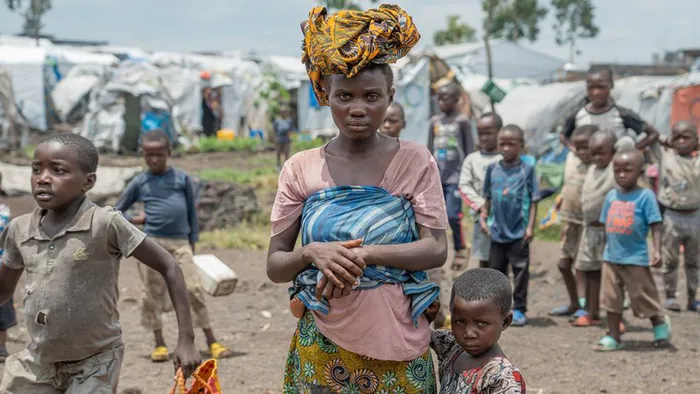M23 attacks continue in DR Congo against refugee camps, health centres

M23 attacks have resulted in conflicts that have, combined with clashes from various armed groups in the region, resulted in the mass displacement of over seven million people. Mineral extraction is the key to understanding the longstanding violence waged by Rwandan and Ugandan backed paramilitary groups in the DRC, the writer says. Picture: Benjamin Anguandia / WFP
By Peoples Dispatch
Last week, at least eight civilians died in an attack against a health centre in the eastern Democratic Republic of the Congo, which has been attributed to the Allied Democratic Forces militia.
This attack follows several recent attacks against civilians in the DRC, including a May 3 attack in which at least 35 people were killed in a bombing of two refugee camps in Lac Vert and Mugunga, in the North Kivu province. Both the United States and the Congolese military have accused Rwanda’s military and the M23 rebel group as being responsible for the attacks.
The province of North Kivu has borne the brunt of violence and displacement since the resurgence of the M23, a rebel group backed by neighbouring Rwanda, in March of 2022. The rebels had briefly captured its capital, Goma, in 2012, before being driven out. These latest bombing attacks took place near Goma.
Kambale Musavuli, Congolese human rights activist, compared the bombings to the genocidal Israeli campaign in Gaza. “Who drops a bomb on refugee camps or people fleeing wars? Israel does … the United States does … and the Rwandan backed militia M23 also does in DRC with total impunity!” he wrote on X.
The US State Department issued a condemnation of the May 3 attacks. “We are gravely concerned about the recent Rwanda Defence Forces (RDF) and M23 expansion in eastern DRC, which has contributed to the displacement of more than 2.5 million people, and call on both parties to respect human rights and adhere to applicable obligations under international humanitarian law,” reads a statement by Matt Miller, State Department spokesperson.
The US, the UN, as well as many Western countries have been consistently condemning attacks in the Congo. Mere condemnations are not enough, however, as Musavuli told Peoples Dispatch back in 2022, “What we need is action, which includes the US and the UK cutting ties with Rwanda, to stop arming, training, and equipping a country that is destabilising the DRC. The weapons that the Rwandan government is providing to militia groups are coming from military aid, Rwanda is not manufacturing them. Stopping this channel of support will have an impact.”
“There is a culture of impunity when it comes to the crimes being committed in the DRC, and there is a lack of political will in the international community, particularly in the case of the US and the UK, to hold their allies accountable,” Musavuli said. “Meanwhile, people in the Congo have continued to be killed in the same way for the past 20 years.”
To activists such as Musavuli, the violence in the Congo has a direct connection to the exploitation of resources in the region. “When the rebels took over the area that has the Coltan, Congolese bear the brunt by dying through the missiles that drop.” Coltan as a resource is being used by powerful corporations as fuel for the “fourth industrial revolution”, as Musavuli describes in a recent interview on BreakThrough News.
Mineral extraction is the key to understanding the longstanding violence waged by Rwandan and Ugandan backed paramilitary groups in the DRC, as these countries seek to enrich themselves through the resources flowing out of the region.
“Ample evidence indicates that Rwanda and Uganda were financing their military expenditure with the profits from natural resource exploitation in the DRC,” stated a UN report mapping human rights violations from the DRC from 1993 to 2003.
M23 attacks have resulted in conflicts that have, combined with clashes from various armed groups in the region, resulted in the mass displacement of over seven million people.
This article was published at Peoples Dispatch